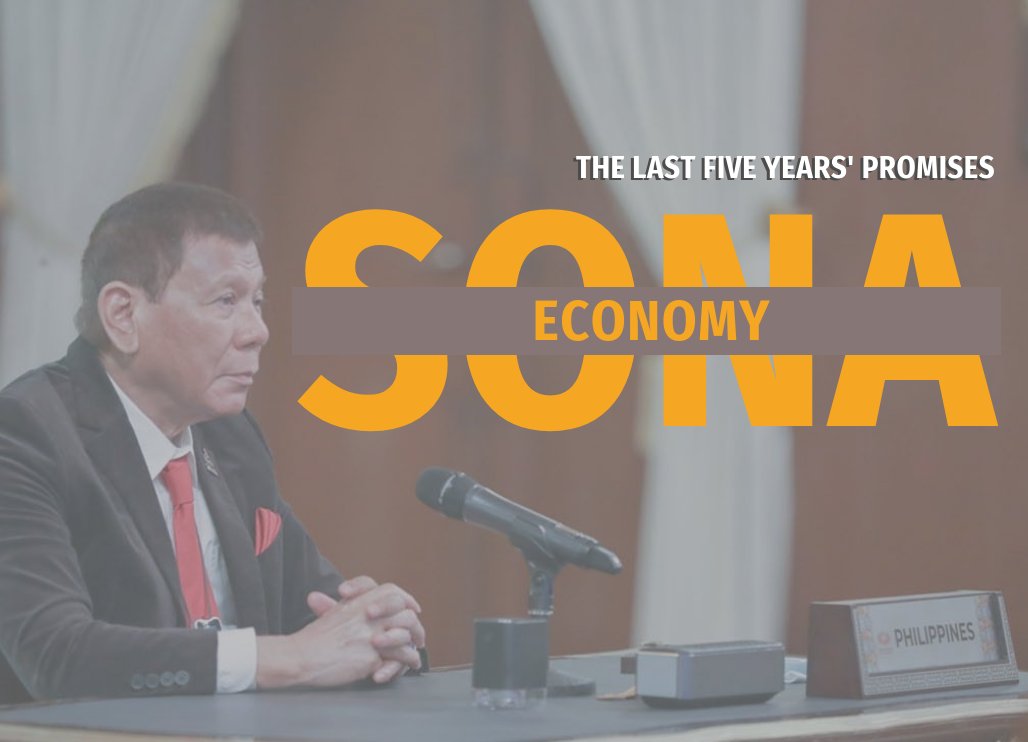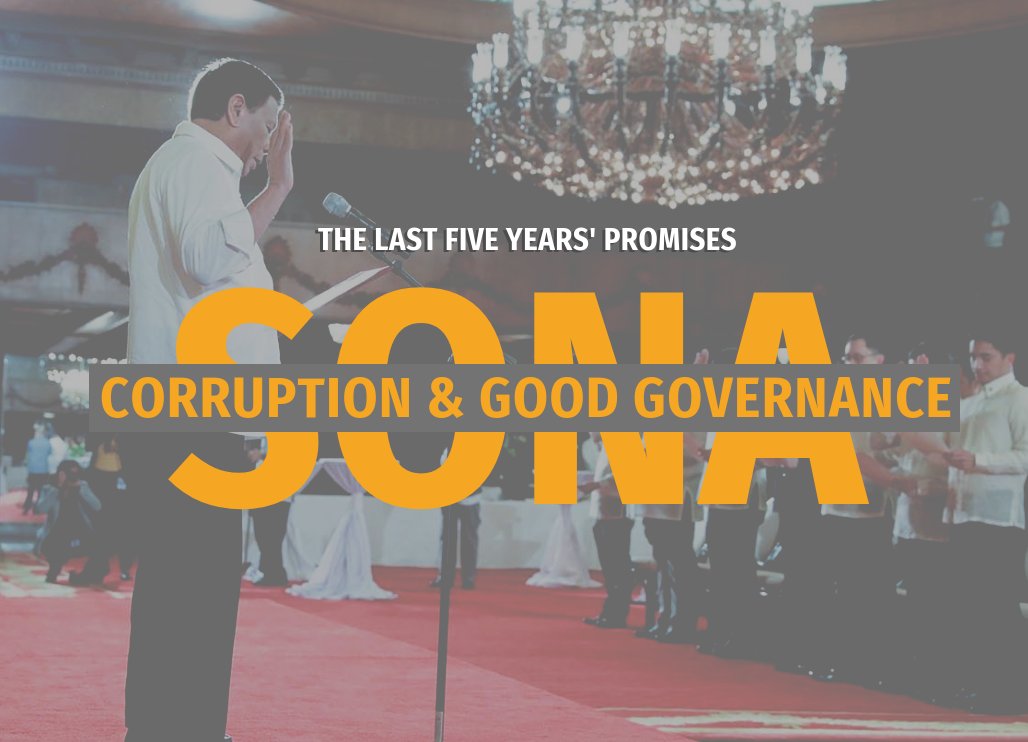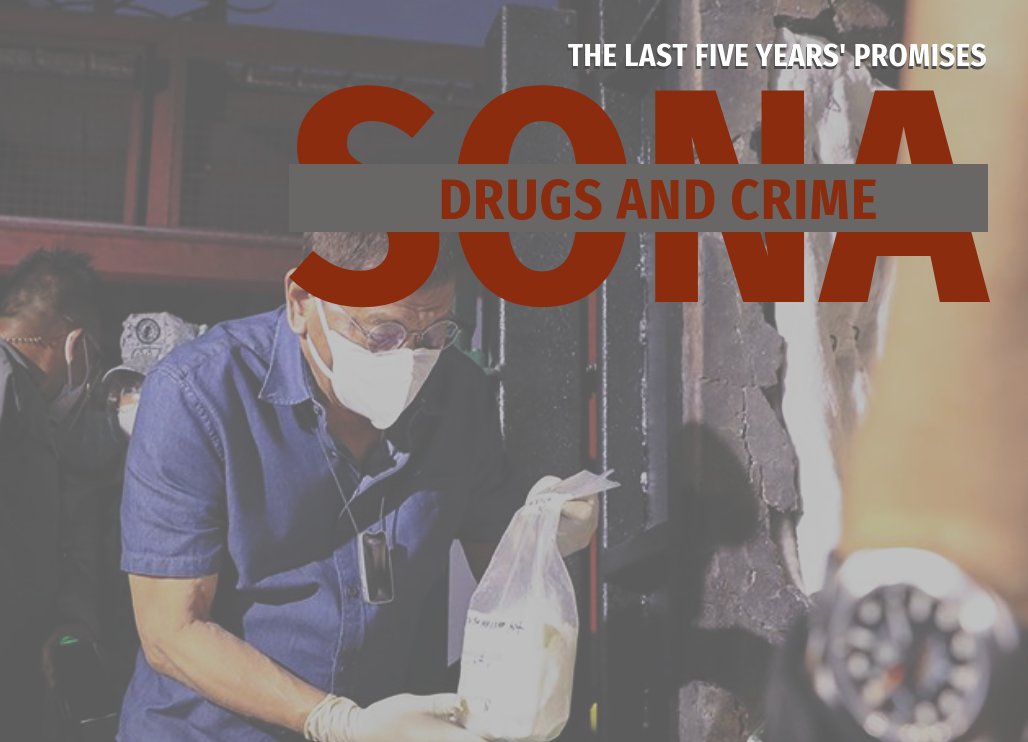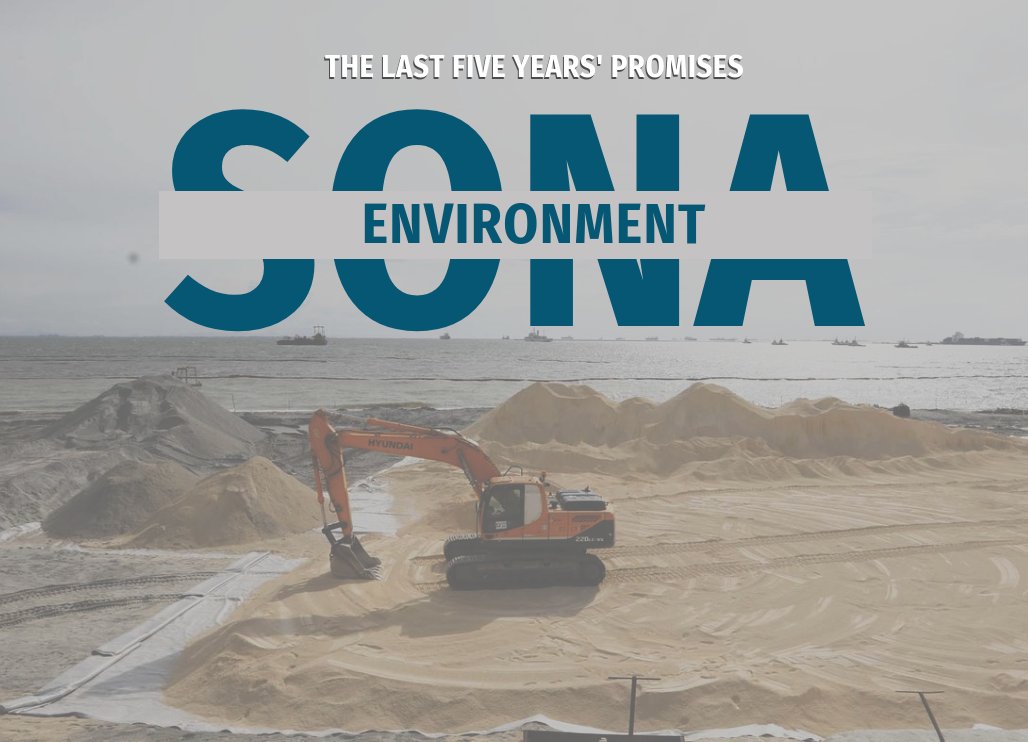The Philippine economy is slowly recovering after the coronavirus disease 2019 (COVID-19) pandemic crippled various businesses and grounded Filipino workers in their homes due to community quarantine restrictions imposed since mid-March 2020.
Data from the Philippine Statistics Authority (PSA) show that local businesses, including those in manufacturing and information and communication technology, have begun increasing their production after the country’s gross domestic product (GDP) growth rate improved to -4.2% in the first quarter of 2021. In the early days of COVID-19 lockdowns from April to June 2020, GDP growth rate dropped to -17% compared to 6.6.% in late 2019.
The Department of Finance (DOF) has also reported that inflation of prices of food and other commodities, such as rice and meat, has eased in June.
The DOF also reported that employment in the country has recovered to its “pre-pandemic level” in May. It said the number of employed Filipinos rose by 1 million (47 million in April 2021) to 48 million Filipinos in May 2021. The country, under Duterte, had a record-high unemployment rate of 17.7% corresponding to 7.3 million Filipinos in April 2020.
“The employment figures are encouraging, and we have to make sure that the gains are not eroded. It is imperative, therefore, that the health risks posed by the epidemic be managed effectively and efficiently, and the transmission of the virus contained, especially as new variants arise,” the department said in a July 11 statement.
To attain the government’s target of 6% to 7% economic growth in 2021, Duterte’s economic managers have called for the accelerated vaccination drive of the government and implementation of stimulus programs for businesses.
In a July 1 joint statement, Finance Secretary Carlos Dominguez and the secretary of the Department of Budget and Management (DBM) and the director-general of the National National Economic and Development Authority (NEDA) encouraged the people to get vaccinated and continue to adhere to health protocols to “help restore the opportunities taken away by the pandemic..”
Since the vaccination rollout began in March 2021, 5.560 million Filipinos have been fully vaccinated, as of July 22, against COVID-19. Since January 2020, total COVID-19 cases in the country has reached over 1.543 million as of July 24, with 27,131 deaths and 1.461 million recoveries.
The government aims to inoculate 70.851 million out of over 109 million Filipinos by the end of 2021 to prevent further COVID-19 transmissions in the country. But Vaccine Czar Carlito Galvez previously said in May that the government may lower its target to 50 million if there would be shortage in vaccine supply.
According to NEDA, the strict and long period of community quarantines due to COVID-19 in 2020 cost the country P1.4 trillion in total income due to restrictions in people mobility. But NEDA Secretary Karl Chua said the gradual easing of the quarantines, the rollout of the recovery packages and other measures such as more modes of public transport, should help boost economic activities.
During his State of the Nation Address (SONA) in 2020, Duterte called on Congress to pass a number of legislative measures to help businesses thrive amid the pandemic. These include the Corporate Recovery and Tax Incentives for Enterprises (CREATE) Act, the Financial Institutions Strategic Transfer (FIST) Act, and the Bayanihan to Recover As One (BARO) Act.
To support MSMEs, the president also pushed for various programs to help them transition to online commerce and asked financial institutions and rent owners to give them grace periods for rent and loan payment.
As Duterte enters his sixth and final year as president, here is an update on the economic promises he made in his SONAs since 2016:
PROMISE: Pass the remaining Tax Reform packages |
|
“We must facilitate the country‘s economic recovery. I call on Congress to fast-track the passage of proposed measures such as the Corporate Recovery and Tax Incentives for Enterprises or CREATE Act.” (SONA 2020)
“I therefore implore Congress to immediately pass Package 2 of the “I am also asking Congress to pass the remaining packages of my Administration’s Tax Reform Program, and the bills that would further raise excise taxes on — very good, let us do it — tobacco and alcohol.” (SONA 2019) |
|
Duterte has already signed into law four components of his eight tax reform packages. These are the Tax Reform for Acceleration and Inclusion (TRAIN) Law, increase of sin taxes on liquor, tobacco and e-cigarettes, tax amnesty, and the CREATE Act. The CREATE Act, enacted on March 26, 2021, is the latest tax reform program signed by Duterte. The law will provide a redesigned fiscal incentives system and cut the corporate income tax rate by 5% starting July 2020 and reduce it further by 1% every year from 2023 to 2027. According to DOF, CREATE is the “largest fiscal stimulus package for businesses in the country’s history, providing private enterprises more than P1 trillion worth of tax relief over the next 10 years with a significant cut on the tax rate for corporations.” The department said CREATE will benefit MSMEs, which compose 99% of local businesses, attract more foreign investments, and create jobs in the country. Meanwhile, the reform on the motor vehicles users charge has progressed. Duterte signed in 2019 the law that abolished the road board, formerly tasked to administer the funds collected from road taxes. However, its proposal to raise the road tax rate is still pending in Congress. Other measures seeking to reform mining taxes, real property valuation system, and simplification of passive income and financial intermediary taxes are still pending in Congress. |
PROMISE: Encourage investments in rural and mega urban areas and Metro Manila for sustainable and equitable economic development |
|
“We will encourage investments that would develop the rural areas and Metro Manila and other mega urban areas.” (SONA 2019) |
|
Data from the Philippine Statistics Authority (PSA) show that total foreign and local investments in 2020 dropped by at least P171 billion. In its report, the PSA said total approved investments from foreign and local investors amounted to P1.137 trillion in 2020, which was 13.10% lower compared to P1.309 trillion in 2019. Among the 17 regions, Central Luzon (Region 3) received the most investments in 2020, with a total amount of P615 billion. CALABARZON (REGION 4-A), which attracted the most funding last year, came in second with P211 billion in investments. The National Capital Region (NCR) again ranked third with P165 billion, an increase of 14% compared to just P66 billion in 2019. Of all the regions, Zamboanga Peninsula (Region 9) had the biggest jump in investments from just P315 million in 2019 to P6.627 billion in 2020. Meanwhile, CARAGA (Region 13) and Bangsamoro Autonomous Region in Muslim Mindanao (BARMM) lagged behind other regions, receiving only P52 million and P14 million investments, respectively. According to PSA, most of the investments in 2020 went to the transportation and storage industry, followed by electricity, gas, steaming and air conditioning, and real estate. While not all approved investments can be expected to materialize, the PSA said total projected jobs generated by the investments could reach 140,216 in 2020, which is 38,738 lower compared to 178,954 in 2019. |
PROMISE: Enforce the Rice Tariffication Law for farmers |
|
“We shall ensure the full implementation of the Rice Tariffication Law, including the Rice Competitiveness Enhancement Fund.” (SONA 2019) |
|
The Duterte government continues to implement provisions of Republic Act (RA) 11203, also known as the Rice Tariffication Law, despite calls from workers groups and lawmakers to repeal it. RA 11203, enacted in 2019, removed quantitative restrictions for rice importers and applied a minimum of 35% tariff per import. In April, Dominguez reported the Bureau of Customs collected P31.9 billion in rice tariffs since 2019. Its highest collection so far was in 2020 amounting to P15.47 billion. Under RA 11203, P10 billion from the rice tariffs will be automatically allocated to the Rice Competitiveness Enhancement Fund (RCEF) for six years, from 2019 to 2024. RCEF, which is created to fund programs to make the local rice industry competitive, is disbursed to different government agencies tasked to provide machinery (P5 billion), seeds (P3 billion), credit assistance (P1 billion), and extension services (P1 billion), such as skills training, for rice farmers. Latest figures from the Department of Agriculture, as of March 2021, show P1.930 billion-worth of zero-interest, non-collateral loans granted to farmers and 122 farm schools enhanced and established. As of July 2021, DA has distributed 920,293 seed bags to 375,292 farmers. Meanwhile, the Philippine Center for Postharvest Development and Mechanization (PhilMech), an agency under DA, has given 8,702 of 15,919 procured farm machinery and equipment to 679,486 farmers in 57 provinces nationwide since 2019. In 2021, PhilMech said it will procure 5,098 more units and distribute these to 1,600 farmers cooperatives and associations with 284,800 members. During a pre-SONA forum in April, Agriculture Secretary William Dar said RCEF programs contributed to the “record high” 19.44 million metric tons of rice produced in 2020, compared to just 18.81 million metric tons in 2019. Latest data from PSA show that rice production from January to March 2021 reached 4.626 million metric tons, slightly breaking the agency’s estimate of just 4.57 million metric tons for the period. |
PROMISE: Pass an enhanced version of Coconut Farmers’ Trust Fund bill |
|
“I once again urge both Houses of Congress to pass a version of the bill establishing the Coconut Farmers‘ Trust Fund. Tulungan natin ang ating mga magsasaka pagka hindi mawawala ‘yang pera, bilyon ‘yan. [applause].” (SONA 2020) “I once again urge both Houses of Congress to pass a more responsive version of the bill establishing the Coconut Farmers’ Trust Fund to ensure the accelerated utilization of coco levy funds for the well-being and empowerment of the coconut farmers.” (SONA 2019) “Our farmers, especially our coconut farmers, form a significant part of the basic sectors of society. It is from the toil of their hands that we put food on the table. It is my hope that we finally see this through. I urge you, Congress, to convene the [bicameral] conference committee and pass at the soonest possible time the bill establishing the Coconut Farmers’ Trust Fund. I pray that you will do it.” (SONA 2018) |
|
After vetoing two similar legislative measures in 2019, Duterte finally signed the Coconut Farmers and Industry Trust Fund bill into law in February 2021. According to the DA, RA 11524, or the Coconut Farmers and Industry Trust Fund Act, will help “uplift” the lives of 2.5 million coconut farmers and sustain the development of the coconut industry. Under RA 11524, the government is tasked to establish a 50-year trust fund from proceeds generated after disposition or privatization of properties acquired through the coco levy funds. The trust fund will have an initial allocation of P75 billion in its first five years. The law also revamped the structure of the Philippine Coconut Authority board to include three members of the coconut farmers sector, each from Luzon, Visayas and Mindanao. PCA is the lead agency tasked to craft and implement the coconut industry development plan, which should aim to increase productivity and earnings of coconut farmers. During his campaign for president in 2016, Duterte promised the return of the coco levy funds to coconut farmers within his first 100 days in office. The coco levy funds were taxes collected from farmers during the administration of the late dictator Ferdinand Marcos in 1971 for the supposed development of the coconut industry. |
PROMISE: Swiftly pass Bayanihan to Recover as One Act |
|
“This health emergency stretched the government‘s resources to its limits. In response, the Office of the President worked closely with Congress for the quick passage of the Bayanihan to Heal as One Act. May I again reiterate my thanks to you, the men and women of Congress, for the effort you invested into passing that law. I hope that we can get some or the same treatment of clarity, purpose and the fastness [applause] to support the passage of the Bayanihan [to Recover as One Act], which will supplement funds for recovery and response against the impact of the COVID-19 pandemic.” (SONA 2020) |
|
Members of the House and the Senate took three months —from June to August 2020—to finalize the consolidated version of the bill for the Republic Act 11494 or the BARO Act. In September 2020, Duterte signed RA 11494 into law. It sought to allocate additional funds for the COVID-19 response and economic recovery projects of the government. Among its provisions include funding loan programs for MSMEs, cash aids for poor Filipino families, compensation for health frontliners who got sick from COVID-19, and one-time cash assistance for unemployed workers. It also funded the procurement of personal protective equipment, drugs and vaccines against COVID-19. However, the budget allocated under RA 11494 already expired on June 30, 2021, after the six-month extension of its utilization in December 2020. Funds allocated under RA 11494, reached over P259.80 billion, according to the DBM. |
PROMISE: Provide low-interest loans to OFWs |
|
“Further, I ask the LANDBANK and other government financial institutions to continue providing low-interest loans to our OFWs.” (SONA 2020) |
|
Various government-owned financial institutions provide low- to zero-interest loans to OFWs. The Small Business Corporation (SBCorp), a government financial institution under DTI, has granted P37.535 million worth of zero-interest, no-collateral loans to 663 OFWS as of June 29. SBCorp offers two loan programs for OFWs that provide a 12-month grace period for payment: the Helping the Economy Recover thru OFW Enterprise Start-ups (HEROES) and the Bayanihan COVID-19 Assistance to Restart Enterprises (CARES). Meanwhile, the Land Bank of the Philippines (LBP) has released P219 million in loans for 176 OFW-borrowers from March 15, 2020 to May 31, 2021. Since 2011, LBP has been offering loans to OFWs who want to put up their own businesses under the so-called OFW Reintegration Program, a tie-up with the Overseas Welfare Workers Administration. As of May 2021, it has released P1.84 billion of P1.89 billion loans granted for 1,297 OFWs. |
PROMISE: Help MSMEs adapt to “next normal” |
|
“The government will intensify its efforts to help businesses, especially our micro, small and medium enterprises or MSMEs, by providing responsive government assistance and services, capitalization, and business operations support as we adapt to the next normal.” (SONA 2020) |
|
According to Lopez, DTI has helped 92 of 486 endorsed MSMEs get onboard on digital selling platforms such as Lazada and Shopee. DTI has partnered with various organizations, such as online stores and financial and learning institutions, for its Reboot Program for MSMEs. The program provides online training, access to loans, waiving of onboarding fees, and discounts from delivery partners, among others, for MSMEs wanting to transition to online business during the pandemic. Other programs DTI offers for MSMEs include webinars, mentorship, participation in online and international trade fairs, and free online tools. As the government continues to support MSMEs, DTI also updated the Philippine E-Commerce Roadmap 2016-2020 and launched the new eCommerce Philippines 2022 in Jan. 29. The new roadmap aims to increase the number of e-commerce companies to one million and raise their economic contribution by P1.2 trillion by 2022. |
PROMISE: Allow deferment of payment of MSMEs to commercial establishments |
|
“Huwag po natin silang ipagtabuyan, tanggalan ng tubig, kuryente, at bubong. Commercial establishments are requested to give grace periods [or] allow deferment of payments, especially for MSMEs that were forced to close down during the quarantine period. Let us help them recover.” (SONA 2020) |
|
In April 2020, DTI issued a memorandum pursuant to RA 11469, or the Bayanihan to Heal as One (BAHO) Act, ordering residential and commercial business owners to provide a 30-day grace period for rental payment of MSMEs. In another memorandum issued June 2020, the department clarified the grace period starts from the last due date or once the enhanced community quarantine (ECQ), modified ECQ or general community quarantine is lifted. The deferred payment shall not incur penalties, fees, interest and other charges, according to DTI. After the expiration of RA 11469 in June 2020, Duterte signed another law, RA 11469, mandating businesses to give a 30-day grace period for the payment of rents and utilities, such as water and electricity, of MSMEs until December 2020. In 2020, DTI enforced the grace period through the issuance of letters of demand to respondents of 421 complaints lodged by MSMEs. Among those rent owners, nine were issued notices of violation due to non-compliance. |
PROMISE: Provide financial relief to MSMEs |
|
“I also enjoin the Bangko Sentral ng Pilipinas and banks operating in the country to provide regulatory relief for our MSMEs and allow loan payment extensions, without incurring penalties and charges.” (SONA 2020) |
|
The Bangko Sentral ng Pilipinas (BSP) issued two memoranda for banks and financial institutions, pursuant to RA 11469 and RA 11494, to implement the provisions for grace period for loan payments of MSMEs “without incurring interests, penalties, and other charges.” RA 11469 mandated a 30-day grace period for loans during the Luzon-wide ECQ and MECQ from March to May 2020. The grant of grace period under RA 11469 ended on May 31, 2020 due to the expiration of the law, according to BSP. BSP again ordered lenders to implement a one-time 60-day grace period until Dec. 31, 2020 pursuant to RA 11494. In a March 19 statement, BSP reiterated that the 30-day grace period for loans under RA 11469 is no longer effective. However, it encouraged banks and financial institutions instead to “continue to provide relief measures to its clients by renewing, restructuring, or extending the terms of the loans, among others, based on their continuing assessment of their cash flows.” Financial institutions, such as SBCorp, continue to offer longer payment periods for loans of MSMEs. Under its Bayanihan CARES and Cares for Tourism Rehabilitation and Vitalization of Enterprises and Livelihood (CARES for TRAVEL) programs, SBCorp offers zero-interest and no-collateral loans, which are payable inr four years. In a July 16 statement, SBCorp said it has P8.08 billion available funds for MSMEs, cooperatives, hospitals, tourism businesses, and repatriated or displaced OFWs affected by COVID-19 pandemic. It has approved P4.856 billion loans for 31,733 MSMEs as of July 15. |
PROMISE: Boost local tourism |
|
“In the same manner, the tourism and recreation industries, which are among the hardest hit by the pandemic, count on our full support. While we slowly try to put the fun back in our local travels, the national government agencies and LGUs must harmonize their policies to boost tourism [while] ensuring everyone‘s well-being. We enjoin our people to help boost the economy by traveling locally [applause] [local na lang] once the necessary systems are in place.” (SONA 2020) |
|
The government has been spearheading programs and crafting policies that keep the tourism industry thriving despite COVID-19 lockdowns around the country. In February 2021, the Inter-Agency Task Force for the Management of Emerging Infectious Diseases (IATF EID) approved the uniform travel protocols for all local government units (LGUs). The uniform protocols removed the requirements for travel authority, mandatory testing (unless required by the LGU of destination) and quarantine unless the traveller shows COVID-19 symptoms upon arrival. But the IATF-EID recently caused confusion after removing the COVID-19 test as a requirement for local travellers, particularly fully vaccinated individuals. The task force amended its decision six days later, on July 8, following opposition from the League of Provinces of the Philippines. Meanwhile, some LGUs have launched “travel bubbles” with other provinces also having zero or low COVID-19 cases for the gradual reopening of domestic tourism. Among the LGUs that established travel bubbles were Baguio City and Ilocos Region provinces and Palawan and Metro Manila in October 2020. Meanwhile, DOT launched in December 2020 a tourism campaign called “Balikan ang Pilipinas” (Return to the Philippines). The campaign, which ran until the first quarter of 2021, encouraged overseas Filipinos to return and visit local tourist destinations to help the local tourism industry recover. The department also put up the philippines.travel microsite containing the latest information on health and safety protocols, and quarantine status in the country. |
PROMISE: Ensure Filipinos are empowered with consumer rights |
|
“Now more than ever, we need to protect our consumers. I direct the Department of Trade and Industry to ensure the empowerment of Filipinos on their consumer rights, and coordinate strategies between public and private organizations in building a fair, safe, resilient, and sustainable economy.” (SONA 2020) |
|
DTI has launched several programs and campaigns that promote consumer rights and protection. Its other initiatives include the weekly radio show Konsyumer ATBP on DZBB (formerly on DZMM), 51 Consumer Care webinar episodes in 2020, and audio-visual materials on YouTube to educate people about various consumer rights. Other services it provides include the “e-Presyo” microsite, which lists the prevailing prices of some basic necessities and prime commodities. |
PROMISE: Pass multi-billion agricultural stimulus package |
|
“I am also requesting Congress to pass the Rural Agricultural and Fisheries Development Financing System Act. We aim to provide adequate, accessible and affordable food for every Filipino [family] through the Plant, Plant, Plant Program. [applause] …” (SONA 2020) |
|
Bills for the proposed Rural Agricultural and Fisheries Development Financing System Act are still pending in Congress. In March 2020, the House transmitted to the Senate the consolidated version, House Bill (HB) 6134, of the proposed law. But senators have yet to act on the measure as five similar versions of the bill in the Senate have been stalled at the committee level since last year. HB 6134 aims to promote rural development by enhancing access to financial services of rural communities, agricultural and fisheries workers in the form of loans, investments and grants. |
PROMISE: Pass Internet Transactions Act |
|
“We need to build trust and confidence in online transactions, stronger protection for online consumers and enabling measures for online businesses is needed through the enactment of an Internet Transactions Act (ITA). [applause] This is very good. I thus direct the Department of Trade and Industry and other relevant [government] agencies to work closely with Congress in ensuring that the provisions of the proposed bill are responsive to the needs of the consumers while promoting the growth of e-Commerce in the country.” (SONA 2020) |
|
Congress has yet to pass a measure to regulate internet transactions or the so-called “electronic commerce” or “e-commerce.” In November 2020, House lawmakers approved on third and final reading HB 7805. Under the bill, a new Bureau of eCommerce under DTI will be established to regulate e-commerce, such as requiring online merchants to register with the government and act on consumer complaints. Other provisions include prohibition on cancellation of confirmed food or grocery delivery, and granting the Trade secretary the power to issue a takedown of a website, webpage, or social media account found to be violative of the proposed bill for a maximum of 30 days. Meanwhile, only one bill has been filed in the Senate as of July 19. Senate Bill 1591 is still pending at the committee level. With the growing number of online sellers, DTI said it supports the passage of bills regulating internet transactions because consumer complaints are also increasing. In 2020, DTI recorded a 549.86% increase, or 15,967, in online transaction complaints compared to only 2,457 in 2019. |
Sources
Philippine Statistics Authority, GDP declines by -4.2 percent in the first quarter of 2021 (at Constant 2018 Prices), May 11, 2021 (pdf file)
Department of Finance, Economic Bulletin on the June 2021 Inflation, July 14, 2021
Senate of the Philippines official YouTube channel, Committee on Trade, Commerce and Entrepreneurship (July 7, 2021), July 7, 2021
Philippine Statistics Authority, Employment Situation in April 2020, June 5, 2020
Department of Finance, DOF Economic Bulletin on the May 2021 Employment, July 11, 2021
Department of Finance, THE MAY 2021 LABOR FORCE SURVEY RESULTS JOINT STATEMENT OF THE DUTERTE ADMINISTRATION’S ECONOMIC MANAGERS:, July 1, 2021
National Task Force Against COVID-19, As of July 22, a total of 16,426,267 anti-COVID-19 shots have been administered., July 23, 2021
Department of Health, COVID-19 Bulletin No. 497, July 24, 2021
National Task Force Against COVID-19, Sec. Galvez on the equitable distribution of vaccines by Region for July, July 19, 2021
Philippine Statistics Authority, Highlights of the Philippine Population 2020 Census of Population and Housing (2020 CPH), July 13, 2020
Inquirer.net, COVID-19 vaccination target may need adjustment – Galvez, May 5, 2021
Rappler.com, Due to India COVID-19 surge, Philippines lowers vaccination target, May 4, 2021
Presidential Communications Operations Office, Talk To The People Of President Rodrigo Roa Duterte On COVID-19, May 3, 2021
National Economic Development Authority, Annual Report 2020
National Economic Development Authority, Updates of NEDA, April 26, 2021
National Economic Development Authority, Assessment of Q1 2021 Philippine GDP growth performance and prospects for recovery, Accessed July 21, 2021
National Economic Development Authority, Impact of COVID-19 on the economy and the people, and the need to manage risk, Accessed July 21, 2021
Transcripts of Duterte’s past SONA
- Official Gazette, 2016 State of the Nation Address, July 23, 2016
- Official Gazette, 2017 State of the Nation Address, July 24, 2017
- Official Gazette, 2018 State of the Nation Address, July 23, 2018
- Official Gazette, 2019 State of the Nation Address, July 22, 2019
- Official Gazette, 2020 State of the Nation Address, July 27, 2020
On passing the remaining tax reform packages
- Department of Finance, Package 1: TRAIN, Accessed July 21, 2021
- Official Gazette, Republic Act 11346
- Department of Department of Finance, Package 2: Sin taxes, Accessed July 21, 2021
- Official Gazette, Republic Act 11467
- Department of Finance, Package 2B: Tax Amnesty, Accessed July 21, 2021
- Department of Finance, Package 2: CREATE , Accessed July 21, 2021
- Department of Finance, DOF, DTI sign CREATE IRR ahead of the 90-day deadline | Comprehensive Tax Reform Program • #TaxReformNow, June 25, 2021
- Department of Finance, Dominguez thanks President Duterte, Congress for timely enactment of CREATE Law | Comprehensive Tax Reform Program • #TaxReformNow, March 28, 2021
- Department of Finance, Reform on the motor vehicles users charge, Accessed July 21, 2021
- Official Gazette, Republic Act 11239
- House of Representatives, Committee Report No. 212 (18th Congress), Accessed July 21, 2021
On more investments in rural and urban areas
- Philippine Statistics Authority, Approved Foreign Investments Report 2020, Accessed July 21, 2021
On enforcing the Rice Tariffication Law
- Official Gazette, Republic Act 11203
- Sunstar.com, Groups gather signatures vs Rice Liberalization Law, Oct. 1, 2020
- Bantay Bigas, Bakit #DuterteWakasanNa?, July 23, 2021
- Amihan Women, [Praymer] Liberalisasyon: Destruksyon ni Duterte sa pambansang industriya ng palay, July 23, 2021
- House of Representatives, House Bill no. 476 (18th Congress), Accessed July 21, 2021
- Department of Finance, Rice tariffication a gamechanger in 2019, Oct. 1, 2020
- Department of Finance, Updates from the economic development and infrastructure clusters April 26, 2021
- Department of Agriculture, Updates on agriculture, April 26, 2021
- DA-PhilRice, Seed distribution updates, July 9, 2021
- Department of Agriculture, 1 M rice farmers receive P15-B worth of farm machinery from RTL-RCEF, Accessed July 21, 2021
- Philippine Statistics Authority, (Volume 5 . No. 3 January-March 2021, Accessed July 21, 2021
On passing a coconut farmers’ trust fund
- Official Gazette, Republic Act 11524
- Department of Agriculture , RA 11524: A game changer that will modernize, industrialize Phl coconut sector | Official Portal of the Department of Agriculture, Accessed July 21, 2021
- Supreme Court e-library, G.R. No. 217965, Aug. 8, 2017
On passing the BARO Act
- House of Representatives HOUSE RATIFIES BAYANIHAN 2 BICAM REPORT, Aug. 24, 2021
- Senate of the Philippines, Senate Bill No. 1564 (18th Congress), AccEssed July 21, 2021
- Official Gazette, Republic Act 11494
- Official Gazette, Republic Act 11519
- Department of Budget and Management, DBM Releases P646.97 Billion for COVID-19 Initiatives Under the Bayanihan Laws, Accessed July 21, 2021
On providing low-interest loans to OFWs
- Small Business Corporation, About, Accessed July 21, 2021
- Small Business Corporation, Transforming the MSME Landscape, Accessed July 21, 2021
- Small Business Corporation, Helping the Economy Recover Thru OFW Enterprise Start-ups (HEROES), Accessed July 21, 2021
- Small Business Corporation, Bayanihan CARES, Accessed July 21, 2021
- Land Bank of the Philippines, LANDBANK lends P1.89-B to OFWs for business ventures, July 11, 2021
- Land Bank of the Philippines, Land Bank of the Philippines OFW Reintegration Program, Accessed July 21, 2021
On helping MSMEs adapt to next normal
- Department of Trade and Industry, UPDATES ON DIGITALIZATION EFFORTS, April 6, 2021
- Department of Trade and Industry, Our partners, Accessed July 21, 2021
- Department of Trade and Industry, Reboot Program for MSMEs, Accessed July 21, 2021
- Department of Trade and Industry, Annual Report 2020, Accessed July 21, 2021
- Department of Trade and Industry, MSME Tech Tools | Department of Trade and Industry Philippines, Accessed July 21, 2021
- Department of Trade and Industry, eCommerce Philippines 2022 Roadmap, Accessed July 21, 2021
On allowing deferment of payment of MSMEs to commercial establishments
- Department of Trade and Industry, Memorandum Circular No. 20-12, April 4, 2021
- Official Gazette, Republic Act 11469
- Department of Trade and Industry, Memorandum Circular No. 20-31.pdf, June 4, 2021
- Department of Trade and Industry, DTI continues to create and review policies that will further protect consumer, Accessed July 21, 2021
- Department of Trade and industry, Ingenuity Despite Adversity, Accessed July 21, 2021
On providing financial relief to MSMEs
- University of the Philippines, Memorandum Circular No. 2020-045
- Land bank of the philippines, Memorandum Circular No. 2020-068
- Bangko Sentral ng Pilpinas, BSP Clarifies Mandatory Grace Period Under the Amended IATF Guidelines, March 29, 2021
- Small Business CorpOration, Small Business Corporation continues to help MSMEs restart via online loan financing, July 16, 2021
- Small Business Corporation, archived webpage [https://archive.is/17O4N], Accessed July 15, 2021
On boosting local tourism
- IATF EID, RESOLUTION NO. 101 Series of 2021
- IATF EID, IATF Resolution No. 124-B
- IATF EID, IATF Resolution No. 125
- GMA News Online, League of Provinces wary of removing COVID-19 test as travel requirement, July 6, 2021
- Manila Bulletin, Governors’ group insists on swab test even for fully-vaccinated travelers, July 6, 2021
- RMN Manila, Resolusyon ng IATF na payagan nang makapag-travel ang mga full vaccinated ng walang COVID-19 testing, tinutulan ng LPP, July 6, 2021
- Department of Tourism, Ridge and Reef Corridor heralds domestic tourism recovery, Oct. 20, 2020
- Department of Tourism, DOT supports expansion of Palawan’s travel bubble starting Oct. 30, Oct. 4, 2020
- Department of Tourism, Philippines, Dec. 30, 2021
- Department of Tourism, Discover more fun | Safe Trip in the Philippines, Accessed July 21, 2021
On ensuring Filipinos are empowered with consumer rights
- Konsyumer ATBP, Konsyumer At Iba Pa
- Department of Trade and Industry, Annual Report 2020
- Department of Trade and Industry YouTube channel, DTI Philippines
- Department of Trade and Industry, Online Price Monitoring System, Accessed July 21, 2021 (brief)
On passing multi-billion agricultural stimulus packages
- House of Representatives, Committee Report No. 210 (18th Congress), Accessed July 21, 2021
On passing Internet Transactions Act
- House of Representatives, INTERNET TRANSACTIONS BILL OTHER VITAL MEASURES HURDLE FINAL READING, Nov. 24, 2021
- Senate of the Philippines, Senate Bill No. 1591 (18TH Congress)
- Department of Trade and Industry, Proposed Internet Transactions Act in Senate to help Filipino online platforms, businesses | Department of Trade and Industry Philippines, Sept, 3, 2020
- Manila Standard, E-commerce complaints rose 549% last year, June 20, 2021
- Philstar,com, Consumer complaints surge over 5-fold — DTI | Philstar.com, Jan. 331, 2021
- Manila Bulletin, MSMEs with IP fared better during pandemic, May 10, 2021
(Guided by the code of principles of the International Fact-Checking Network at Poynter, VERA Files tracks the false claims, flip-flops, misleading statements of public officials and figures, and debunks them with factual evidence. Find out more about this initiative and our methodology.)







